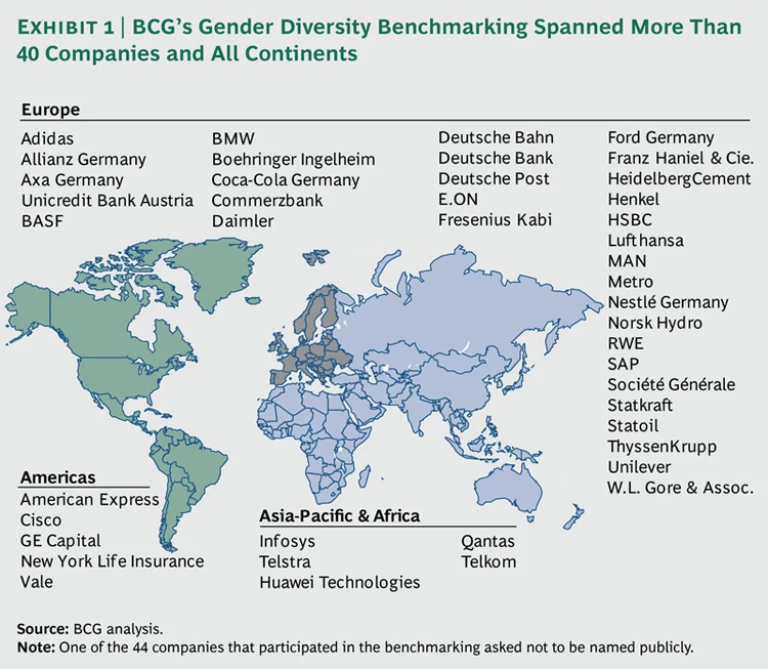Everyone knows the names of powerful female executives such as Facebook’s chief operating officer Sheryl Sandberg in the U.S. In Australia, Westpac Group’s CEO Gail Kelly is a familiar name; in India, it’s the same story with ICICI Bank’s CEO Chanda Kochhar .
But why are these exceptional leaders still the exception? Why, in the second decade of the twenty-first century, do so few women make it to the top?
And what can be done to ensure that more women become experienced, capable leaders of corporations and other institutions?
That is the fundamental question that The Boston Consulting Group has sought to answer through recent surveys, benchmarking, interviews, and analysis.
It quickly became apparent early in our research that there is limited benefit to be gained by initiating yet more affirmative-action programs or by simply placing more women on boards of directors, for example. Fundamentally, the dearth of female leadership is a pipeline problem: overall, women are well represented in the workplace, but the pipeline breaks down somewhere between middle management and the C-suite.
In this report, our comprehensive benchmarking studies and project examples pinpoint the factors that perpetuate the underrepresentation of women in leadership roles. BCG’s long-term investigations of gender diversity, combining quantitative and qualitative case experience with newly conducted benchmarking based on interviews with senior executives in human resources from 44 multinational organizations worldwide, expose individual and social obstacles to women’s career progress—and reveal which barriers companies have the power to dismantle. (See Exhibit 1.)
Importantly, we have found that awareness of the gender diversity gap is not the primary challenge. Rather, the greatest obstacle is the need for each organization to identify its own glass ceiling and to develop—and promote—appropriate solutions that apply at every level throughout that organization.
This report points to what businesses and other institutions must now do to re-dress the imbalances. Specifically, we describe BCG’s approach to fostering gender-balanced leadership and developing leadership pipelines that include more women.






